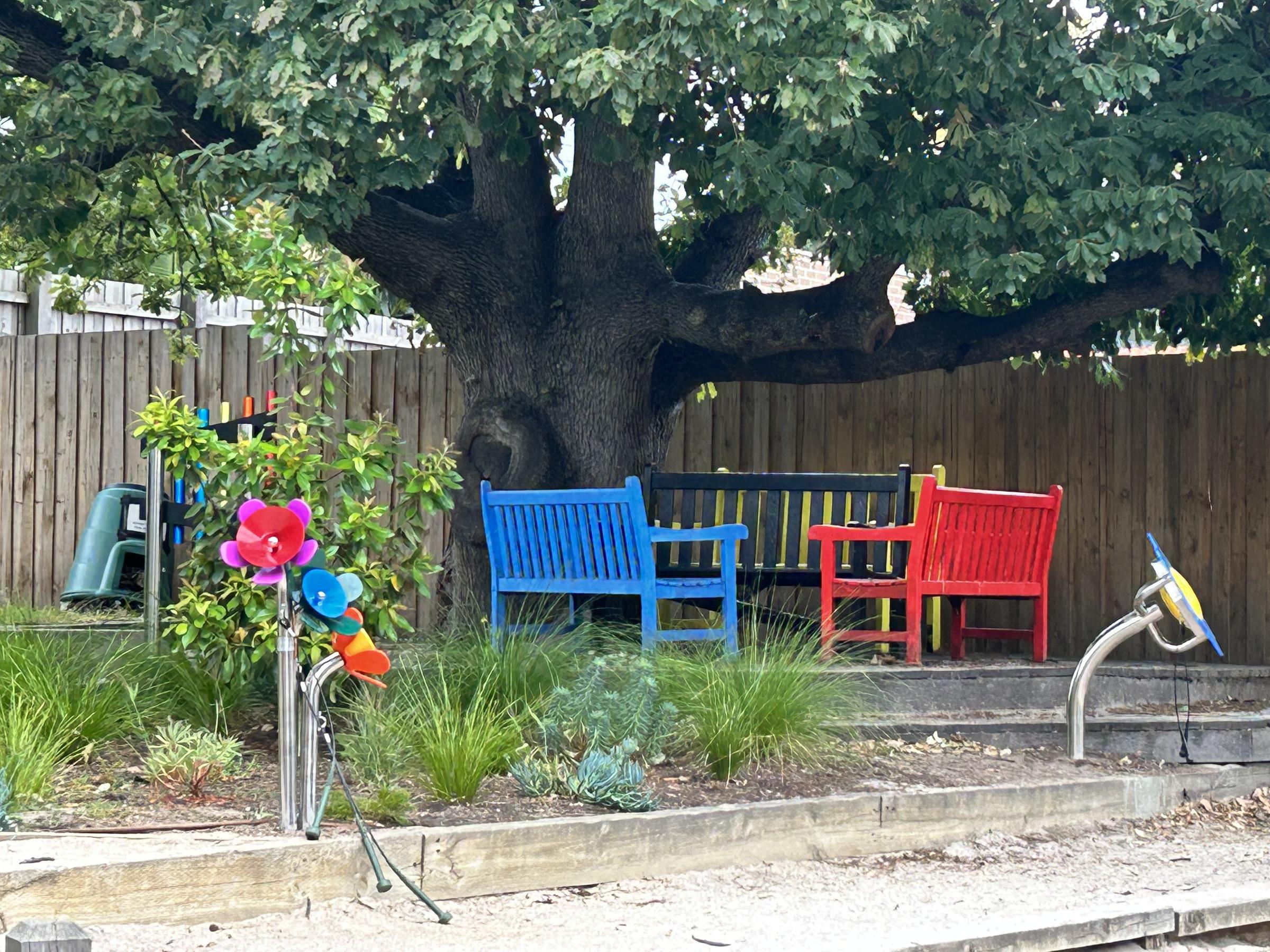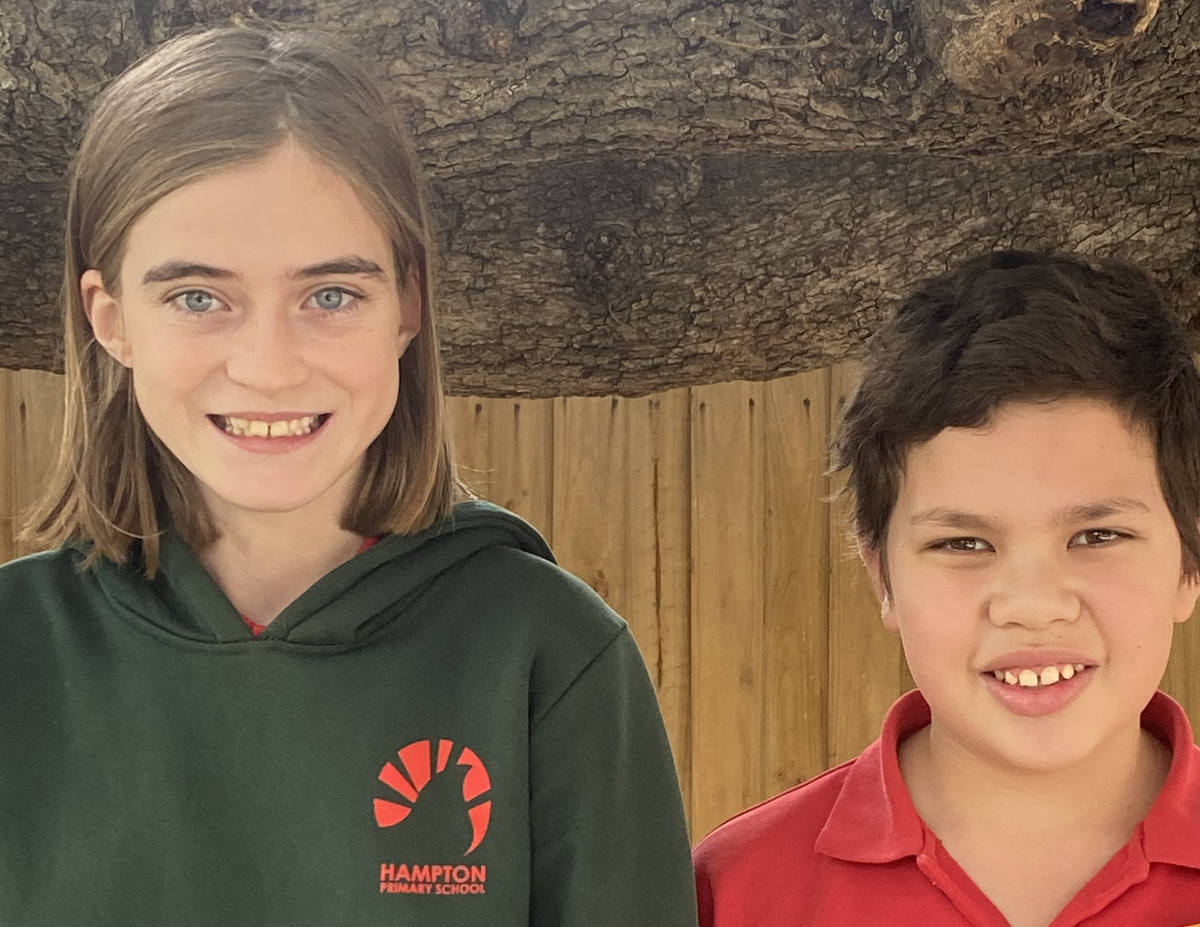Wellbeing
Amanda Howe | Assistant Principal

Wellbeing
Amanda Howe | Assistant Principal


Hi everyone, we would like to introduce ourselves to you. We are your Friendship Captains for 2023.
My name is Jimmy and I love learning LOTE at school and my favourite foods are ME RE BUS (noodles, sweet gravy and egg) and Vanilla Milkshakes. My favourite games to play are chess and snakes and ladders.
My name is Grace and I love doing puzzles, being at school having fun with my friends and running. My favourite subjects are sport and art and I love eating Fried Rice and chocolate ice cream.
We are very proud to be your Friendship Captains in 2023 because we want everyone to have friends and to be included.
We want Hampton Primary School to be a happy place for everyone to learn and have fun.
We believe that a good friend is someone who:
During 2023 we will run a Friendship Club every Friday at lunchtime on the Stage.
This will start in Week 9.
This means we will be there each week with different games to play and everyone is welcome.
We know that not everyone wants to play footy or basketball or tiggy at lunchtime, so we think this is another really fun thing to do.
So please remember, if someone looks a little bit lonely or sad, please check if they are ok because everyone can be a good friend.
Jimmy and Grace 😊
While we know sleep is essential for good health, research shows that many children and young people are not getting enough sleep on school nights. This can affect thinking, concentration, memory, reaction times and mood.
Research shows about 12% of primary school-aged children, a quarter of 12- to 15-year-olds and half of 16- to 17-year-olds don’t get enough sleep on school nights. The recommended amount of time to sleep for primary school-aged children is 9 to 11 hours. For teenagers, it’s 8 to 10 hours.
Signs that your child is not getting enough sleep can include:
· low mood and irritability during social interactions
· reluctance or arguing about getting off devices and going to bed
· falling asleep during the day
· difficulties waking up for school and sleeping in late on weekends to catch up
· changes to communicating or interacting at home.
You can help your child to improve their sleep by:
· establishing a regular sleep pattern and consistent bedtime routine
· supporting them to avoid using electronic devices such as smartphones before going to bed and in bed
· encouraging your child to exercise and spend time outside in daylight, steering clear of vigorous activity in the hour before sleep
· encouraging them to wind down and relax before going to bed.
If your child is still having trouble sleeping, has persistent problems with low mood, excessive daytime sleepiness, restlessness in bed, severe snoring or wakening unrefreshed, despite getting adequate length sleep, they should see a doctor.
For more information on sleep health, you can refer to: ·
Sleep tips for children
https://www.sleephealthfoundation.org.au/sleep-tips-for-children.html
Facts about sleep for parents and school staff, from the Sleep Health Foundation
https://www.sleephealthfoundation.org.au/facts-about-sleep-for-parents-and-school-staff.html
Why sleep is so important, from the Kids Helpline’s ·
Sleep explained, from the Better Health Channel
https://www.betterhealth.vic.gov.au/health/conditionsandtreatments/sleep